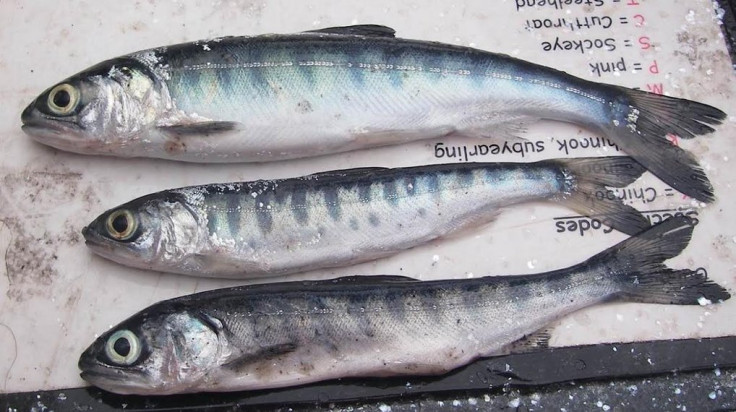Salmon starving amid global warming may trigger fishing ban in Washington and Oregon

The size of starving coho salmon and the numbers of the fish are shrinking so dramatically that officials along the US Pacific Coast are considering shutting down commercial and recreational salmon fishing in Washington and northern Oregon this year.
"We're looking at a pretty bad situation for coho and we need to do what we can to preserve them," said Kyle Adicks, salmon policy analyst for the state Department of Fish and Wildlife. Closing fisheries is "an extreme option but it's an option we're looking at," he told the Washington Herald.
The ban would be the first one since 1994. Salmon fishing has been significantly curtailed since 2008. California, too, faces severe restrictions on commerical chinook salmon fishing this year.
The 2015 salmon season was one of the lowest harvests on record due to drought and the drying up of rivers and streams where the fish spawn, and what's known among scientists as "The Blob" — a mass of warm coastal ocean water from Mexico to Alaska caused by global warming that has driven typical food for the salmon far deeper into the ocean.
As bad as last year was, 2016 looks even bleaker. Approximately 380,000 Columbia River hatchery coho are expected to return to the Washington coast this year, which is only half of last year's forecast, reports the Associated Press.
Some 300,000 chinook salmon from California's Sacramento River system made it back to the ocean after spawning, which is also about half of last year's population.
The Blob has not only slashed numbers of salmon, but their weight as well, scientists have found. The Skagit River coho salmon run in Washington in 2015 was the worst on record. Not only were the numbers of surviving fish at record lows — only 12% of a typical run — most of the fish were starving and extremely low weight, according to the National Oceanic and Atmospheric Association.
While an average adult coho spawning in the Skagit usually weighs up to 8 pounds, the vast majority of fish that returned to the ocean in the fall of 2015 were less than half of that. "I personally have never seen them any smaller, and I have been doing this for 26 years," said Brett Barkdull, a district biologist based in Skagit County.
Before settling on a fishing ban, officials are also considering two other options that would severely restrict fishing. The Pacific Fishery Management Council will make its determination in April and forward its recommendation to federal officials for a final decision by the first of May.
"We know that severely limiting opportunities will hurt many families and communities that depend on these fisheries," Jim Unsworth, director of the Washington Department of Fish and Wildlife, said in a statement. "But conserving wild salmon is our top priority."
A shutdown of salmon fishing will have tremendous economic consequences along the coast. It would affect fishermen's livelihoods as well as the tourism industry in many towns that rely on recreational anglers.
"It's not what we want to see, since all the coastal fishing communities are dependent on tourism and our commercial fishers going out and catching salmon," Butch Smith, owner of Coho Charters in Washington, told the News Tribune. "That's our Microsoft and Boeing out here on the coast. Fishing is our lifeblood."
"I personally have never seen them any smaller, and I have been doing this for 26 years," said Brett Barkdull, a district biologist based in Skagit County.
© Copyright IBTimes 2025. All rights reserved.






















